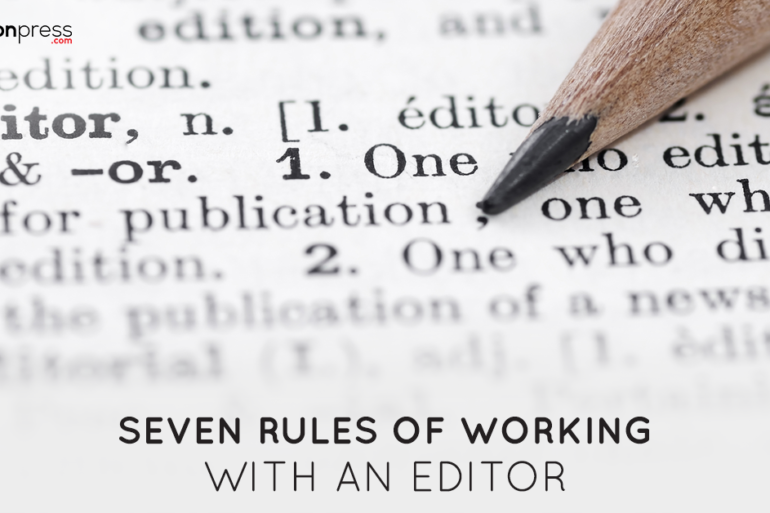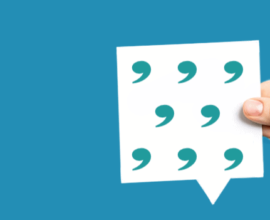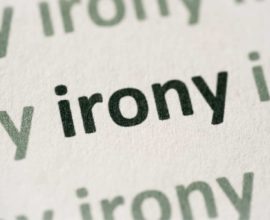Seven Rules of Working with an Editor
What is the most important process that needs to be done before one publishes a book? Is it finalizing the manuscript, designing the book cover or planning marketing strategies? Actually speaking, the most important process is editing a book, and at the same time, learning how to work with an editor in a cordial manner. Below are the Seven Rules of Working with an Editor which you should abide by if being a bestselling author is your goal!
An editor is a person who breathes life into your ideas and enhances your work by correcting the errors in your manuscript. There are many authors who believe that an editor isn’t indispensable and that a manuscript can be handed into a publishing house without having an editor oversee your work. That is never the case and is far from the truth. As an author, there is nobody whose comments you should consider more seriously than an editor’s.
Finding an editor to work alongside you on your book can be a herculean task. If you are a first-time author, you may be unsettled by the number of changes your editor makes on the manuscript. It may help to remember that the editor is working for you and not against you, to make your book a success. Maintaining a healthy professional relationship with your editor is absolutely crucial. Hence, here are seven rules to follow to achieve this:
1.Remember that an editor is your greatest asset
It is understandable to get unnerved when you see red markings made by your editor on the manuscript. Whether you are a novice or a bestselling author, nobody enjoys being criticized, no matter how constructive it might be. Once you realize that the changes being made will enhance your novel and help you convey your ideas better to the readers, you will recognize the value of your editor’s inputs. An editor is not emotionally involved in your work and hence, they will have an objective view of your work. Take into consideration the changes your editor suggests, as their perspective might match with the reader’s as well.
2. Pick your battles wisely
There will definitely be moments when you disagree with your editor regarding the changes they’re suggesting. If the change is a spelling error, missing punctuations or a grammatical mistake, let them make these corrections, as they would be better aware of the intricacies of the language. In case the editor replaces a word or rewrites a sentence and you aren’t fond of it, ask them for their reasoning behind the change. It might open new doors for you – you might learn something new or you might be able to explain to the editor your rationale behind the original sentence.
3. Communicate with your editor
Always remember that your editor and you are on the same team. You might be adamant to change certain things in your book and that is alright, as long as it is logical and grammatically sound. Let them know which parts you are unwilling to change, so as to avoid friction at any point in time. You must tell them who your target audience is, as the manuscript might need to be edited differently to appeal to different sets of people. As an author, the definition of success might be blurry. Talk to your editor about what you envision to be a success so that your book will help you achieve the goals you have set for yourself.
4. Meet your deadlines
An editor will ask you to review the comments on your manuscript and get back to them within a stipulated time. Ensure that you meet the deadline you both agree on so that they can set aside time to review your work and give you valuable feedback. If you need an extension or will be unable to meet a deadline for whatever reason, always communicate it to your editor at the earliest. Provide them with a new deadline that you can actually meet, so as to maintain an amicable relationship.
5. Take advantage of your editor
Your editor might have edited a hundred books in their career or maybe just a single book, but try to choose the right person to prepare your book for publishing. Take their skill set into account to ensure they help you produce the best version of your book. Your editor is the best resource in your writing career and will help you learn a plethora of things related to the ever-evolving language.
6. Ask for another editor if you’re not satisfied
In self-publication, you are often assigned an editor by the publication house. In some instances, you might not click with them or you both might have clashing points of view. You can try to resolve the differences, but if you’re dissatisfied or unhappy with the services rendered, you can request the publication house to assign you another editor. You can also ask another editor to take a look at your work after the first round of editing is done for a second opinion.
7. Thank your editor!
A writer does not realise how their work is largely improved by an editor’s time and efforts. We think of editors as a barrier we need to overcome and a hurdle we need to cross when in reality, they show you how a reader would react to your story. They are an essential test run you need to take before you launch the book into the world. Editing is a difficult job and an editor does not get enough credit. They do not get their name published alongside yours, although they have put in almost as much effort as you have. So, please include their name in your acknowledgments and express gratitude for their work. They will appreciate it more than you can imagine!






